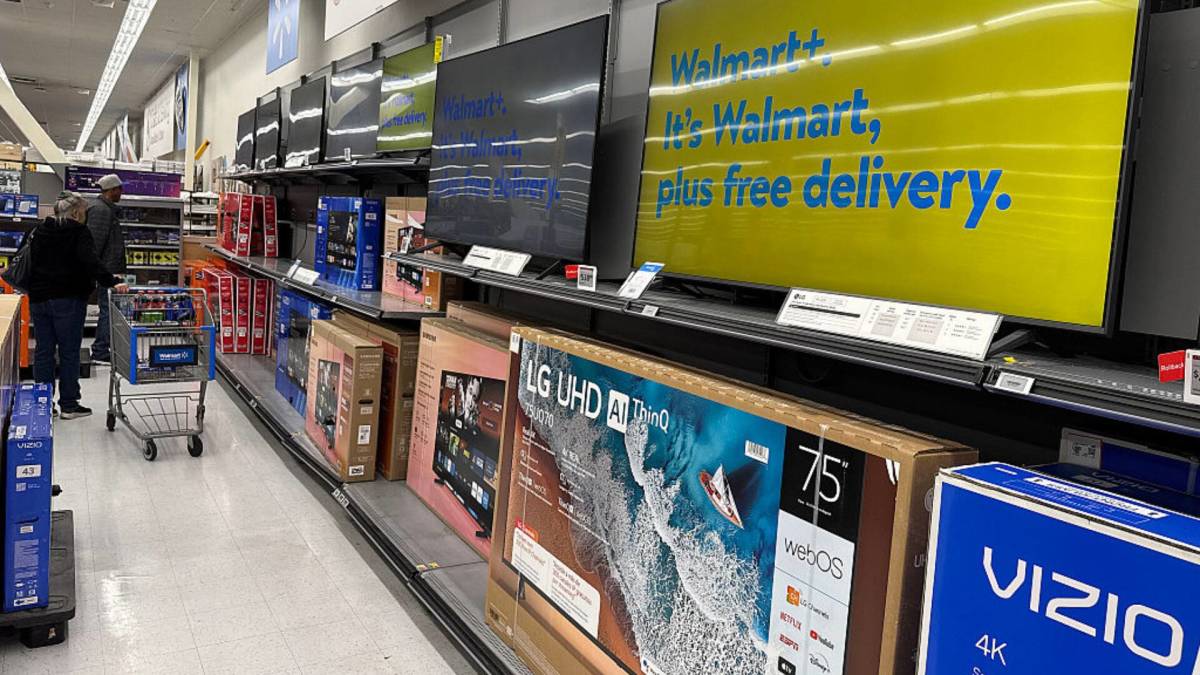Walmart (WMT) continues to widen its lead the old-fashioned way — through scale and execution.
The retailer operates more than 10,750 stores and clubs globally, which serve as the backbone for a fast, tech-enabled flywheel.
In its most recent quarter, Walmart U.S. comp sales jumped 4.6%, while global eCommerce sales rose 25%, underscoring the effectiveness of its omnichannel strategy to capture greater market share.
Beyond the aisles, diversification is doing real work.
For instance, its powerful retail-media business is surging, with global ad sales skyrocketing 50% year-over-year as Walmart Connect links shopper data with streaming inventory from Vizio.
On top of that, Walmart’s ramping up its investment in automation and AI, including real-time supply-chain systems, and plans to add Bluetooth sensors to 90 million grocery pallets annually by the end of next year.
That widening moat sets the stage for Walmart’s next flank, the home.
In spreading its tentacles beyond groceries and general merchandise, Walmart’s now moving into consumer technology.
It’s now partnering with Google (GOOGL) on a new initiative aimed at addressing a persistent household problem.
Walmart is leaning on Google’s AI to tackle a stubborn problem for millions of households.Image source: Shutterstock
Walmart is turning to Google to tackle a longtime household problem, using AI-powered security cameras to deter intruders and prevent barking dogs.
The retail giant has partnered with Google to introduce new Onn-branded smart cameras, a move to combine low-cost hardware with advanced AI.
More Retail Stocks:
Walmart’s Onn Indoor Camera is priced at just $22.96, while the Onn Video Doorbell sells for $49.86, challenging higher-priced rivals.
Both devices seamlessly sync with the Google Home app, offering high-quality live video, snapshots, motion detection, and sound recognition that’s sensitive enough to pick up voices and consistent barking.
Google says Walmart is the first external brand to integrate Gemini for Home AI into its cameras, marking an early step in a broader rollout.
Related: Legendary fund manager drops bombshell call on Nvidia stock
With a premium subscription, users unlock features such as AI-generated text descriptions of events and searchable video history.
“We don’t want to constrain Gemini to just one brand, one OEM, one form factor, one price point,” said Google Home’s Anish Kattukaran. “Walmart’s our first. It was a very deep collaboration.”
For Walmart, the deal marks its entry into the fast-growing smart-home arena, while building on its broader AI push. For investors, it’s more of a test for Walmart to diversify beyond groceries, while Google pushes Gemini AI deeper into homes.
The smart-home market has clearly zoomed past the $100 billion mark, and growth shows no signs of slowing.
According to Fortune Business Insights, global sales are expected to reach $147.5 billion in 2025, blowing past the $633.2 billion mark by 2032 (23% CAGR). North America holds approximately one-third of the market share with an early lead in connected living.
On the unit side, the momentum is clear.
Device shipments are expected to rebound to 931 million units in 2025, representing a 4.4% bump from last year. Moreover, the fastest-growing category isn’t flashy gadgets, it’s security.
Related: CoreWeave lands mega deal from AI giant
Home monitoring gear, including items such as cameras, locks, and doorbells, now accounts for more than 25% of global shipments, underscoring a preference for deterrence and peace of mind.
The platform war remains dominated by the same two heavyweights.
Amazon’s Alexa and Ring and Google’s Home and Nest command the lion’s share of U.S. households, while Apple’s HomeKit and Samsung’s SmartThings carve out smaller roles. Recent surveys indicate that Amazon and Google are significantly ahead of their competitors in terms of smart-speaker ownership.
Walmart’s play seems a lot different, though.
As a retail gatekeeper, its private-label Onn products are flooding the value end of the market. Analysts at Omdia note retailer-owned brands are looking to squeeze established players at lower price points.
The early signs suggest that they’re working.
In August 2025, Walmart’s Onn brand featured 61 products in its top 100 electronics bestsellers, underscoring that affordable, functional smart-home gear resonates with shoppers.
-
Global smart-home sales are set to quadruple by 2032.
-
Security products account for over a quarter of shipments.
-
Amazon and Google currently dominate the U.S. smart-home ecosystem.
-
Walmart is carving out a value niche with Onn, already cracking bestseller lists.
Related: Apple report reveals a worrying iPhone 17 trend
This story was originally reported by TheStreet on Oct 3, 2025, where it first appeared in the Retail, Shopping Malls, Chain Stores News & Analysis section. Add TheStreet as a Preferred Source by clicking here.
